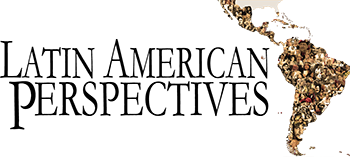Academic Entrepreneurs, Public Policy, and the Growth of Latin American Studies in Britain during the Cold War
by Rory M. Miller
The initial development of Latin American studies in Britain in the early 1960s resulted from the interest of pioneering academics in London and Cambridge and the Royal Institute of International Affairs. Alongside these academic efforts, the government’s concerns about the declining role of British business in the region triggered the establishment of the Parry Committee in 1962. Reporting in 1965, this committee recommended the establishment of five government-financed Latin American centers, together with investment in training new Ph.D. students, especially in the social sciences. These younger scholars, who took the opportunity to do research and travel in Latin America, soon began to react more strongly against U.S. policy, economic inequality, and human rights abuses. In the 1970s, tensions between the older and newer generations became acute with the Pinochet coup and the “dirty wars.” Many academics thus distanced themselves from business and government in a way that the pioneers had not anticipated.
El desarrollo inicial de los estudios latinoamericanos en Gran Bretaña a principios de la década de 1960 se debió al interés de académicos pioneros en Londres, Cambridge y el Instituto Real de Asuntos Internacionales. Junto con estas iniciativas académicas, la preocupación gubernamental ante el declive de los negocios británicos en la región dio lugar a la fundación del Comité Parry en 1962. En su informe de 1965, dicho comité recomendó el establecimiento de cinco centros latinoamericanos financiados por el gobierno, así como la formación de nuevos estudiantes doctorales, sobre todo en el área de ciencias sociales. Estos académicos más jóvenes, que aprovecharon la oportunidad de estudiar en y viajar por América Latina, pronto comenzaron a reaccionar con mayor fuerza contra la política de EE.UU., la desigualdad económica y los abusos contra los derechos humanos. En la década de 1970, las tensiones entre las generaciones más viejas y las nuevas se agudizaron con el golpe de estado de Pinochet y las “guerras sucias.” Muchos académicos se distanciaron entonces de los negocios y los asuntos del gobierno de una manera que los pioneros no habían previsto.
CONTINUE READING THE FULL ARTICLE HERE


No comments:
Post a Comment